8 Interesting Facts About Quartz Countertops
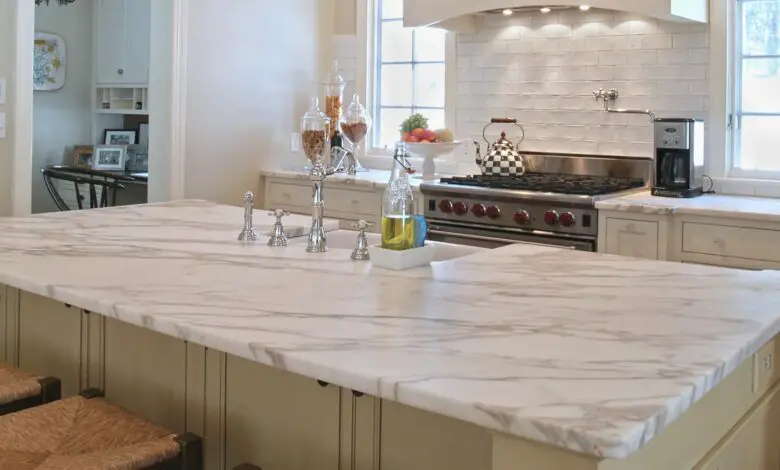
Quartz countertops have grown in popularity over the last few years due to their maximum durability and versatility. Many people are choosing this material for their kitchen because of the many benefits and ease in which they can be installed.
Quartz is an engineered stone, not a natural stone. This is part of the reason why it is more durable than materials such as marble or granite.
Let’s explore what quartz countertops are and how they can give your kitchen an amazing aesthetic appeal.
Almost all quartz is from the same place
The process of creating this engineered stone started in Italy by a company by the name of Breton. They were the first company to license the technology that gives us quartz. They licensed it under the name of Bretonstone.
It has given its technology to many other companies over the last 50 years, but all the companies still essentially use the same patent and the same technology. One of the most famous companies to use this patent is Caesarstone. They are well-known in the business and offer some of the best prices and craftmanship.
The process of making quartz usually takes natural stone and mixes it with polymers. All the air is then removed and heated and shaped into slabs. All quartz is usually sold in pre-made slabs.
Quartz countertops can also include brass, mirrors, piece of glass, and granite and marble. All of these materials give quartz a very unique appearance.
Quartz is nonporous
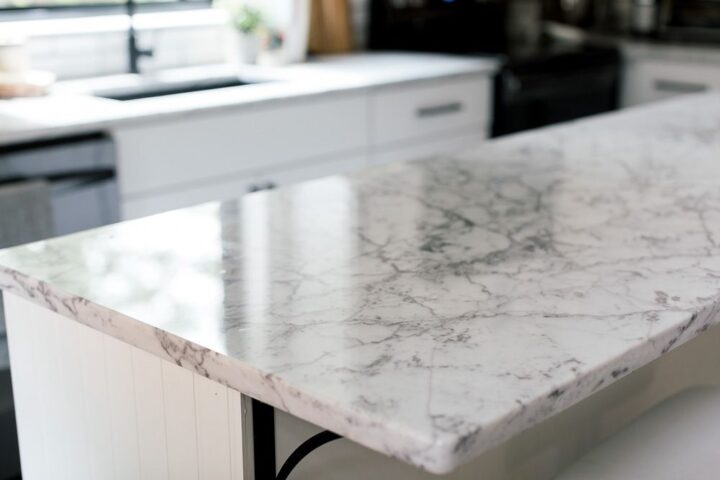
Quartz is one of the only countertop materials to be naturally nonporous. This means it can repel mold, mildew, and other bacteria.
It also takes away the need to be resealed every few years like granite. With its natural ability to get rid of dirt and bacteria, cleaning quartz is also considerably easier than cleaning other types of counters.
This quality makes quartz very low maintenance and loses the requirement of having to buy special cleaners. Special sealing materials or overlays are also not necessary. As soon as quartz is done being made, it can be installed in your kitchen and virtually last a lifetime.
Most countertops are not 100% quartz
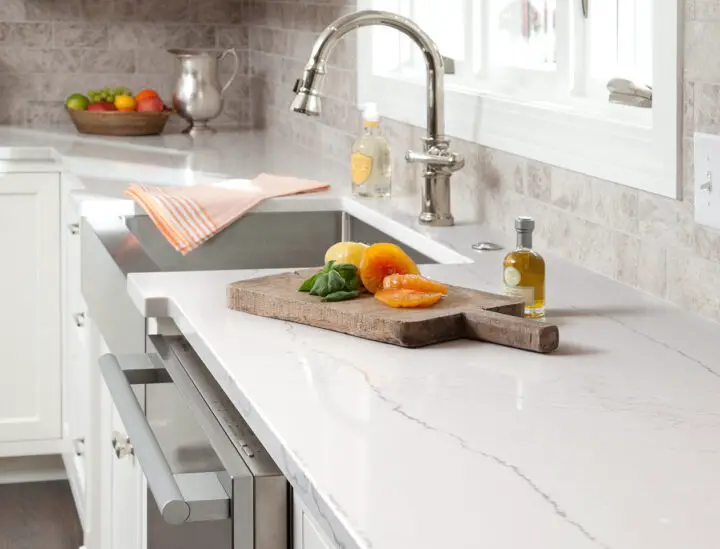
Of course, quartz is present, but it is not all that is in quartz. As mentioned above, there are often fragments of other materials.
There is also always a cement or polymeric binder. These other materials usually account for about 10% of the total volume of the slab. The other 90% is quartz along with recycled wastes such as ceramic, glass, silica, granite, and marble.
Not every slab will have the same amount of quartz and it is usually impossible to tell exactly how much quartz your countertops may have in them. It is not pure extracted quartz from quarries as this would be extremely expensive.
The way the quartz is mixed and engineered is what makes it so durable. It also makes it possible to have quartz counters in virtually any design and color. Finding quartz to match your designed kitchen is extremely easy. You can even have quartz designed to look like marble and granite.
Quartz is so strong it can be walked on
While the majority of quartz in homes is found in counters, many large buildings use it as flooring. It is most commonly found in malls and airports. You were probably somewhere this week where you walked on quartz countertop floors.
The first engineered quartz made in Italy was used to make tiles for floors, not countertops. This is partly because the process was new, and slabs were made in tiny sizes. Now the majority of quartz is made in huge slabs because they are meant to be made into countertops.
Quartz has caused granite prices to drop
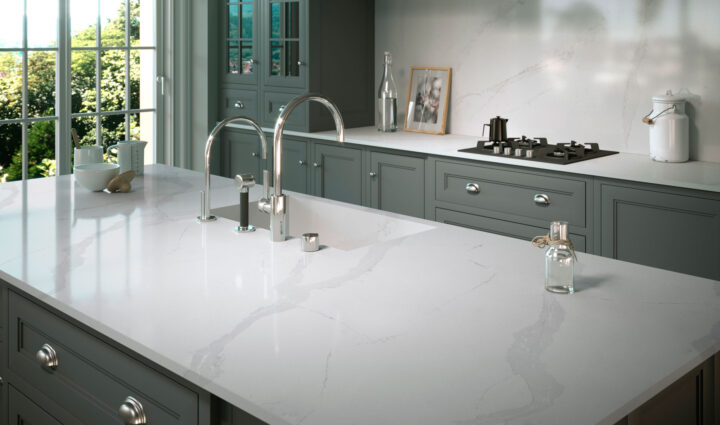
While granite used to be one of the top choices for counters, quartz has now gained more traction and is more sought after than granite. Especially since quartz can be made to look like granite but is much more durable and easier to clean than granite.
Since more people are choosing quartz, it has caused the prices of granite counters to drop dramatically. It has also made granite more widely available. While this is good news for granite, fewer people are still choosing it because they recognize that quartz is a much better choice.
Quartz is environmentally friendly
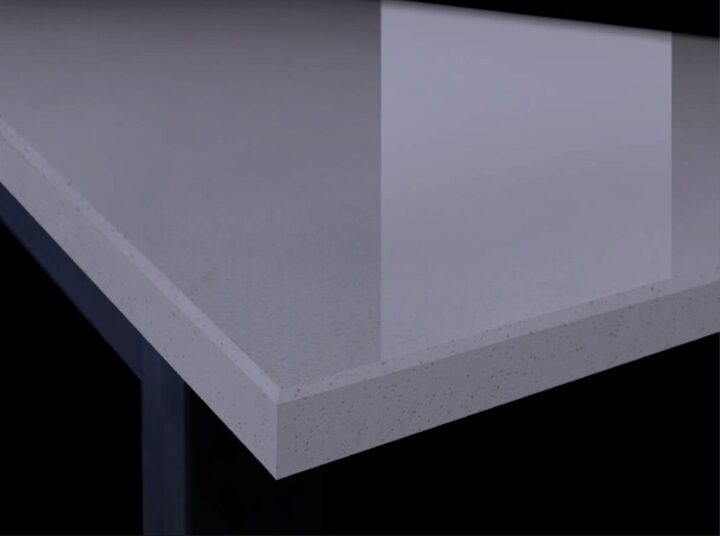
Many homeowners choose quartz because of the environmentally friendly factors. Quartz is almost solely produced using waste products. No new materials are extracted or cut down to make quartz countertops. Over 90% of quartz is found naturally or made with reusable materials.
With the green movement and more people trying to lessen their carbon footprint, quartz countertops are growing in popularity. People can feel good about choosing this environmentally conscious material.
The 10% of quartz that is resins is also becoming less and less synthetic. Some parts are still artificial but most of them are organic resins.
Quartz is not French
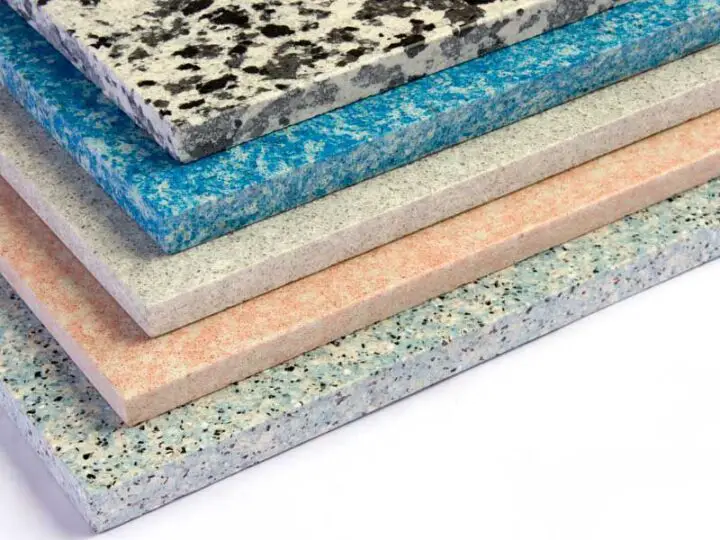
Many people think Quartz originated in France because of the way it looks and because of the name Bretonstone. There is a town in France called Breton where stones can be extracted, but quartz has nothing to do with this town.
Bretonstone was created close to Venice, Italy. Not in France at all. The name Bretonstone was chosen because “bre” is close to the word “patent” in Italian. “Ton” comes from the man who created engineered quartz whose surname was Toncelli. They were combined to create a unique name for this new technology.
Quartz is highly resistant
We already covered how quartz is resistant to bacteria and mold, but it also resistant to virtually anything that could be in your kitchen. It cannot be scratched or dented, which means you do not have to be overly careful with heavy items like pots and pans.
Even cooking materials with feet can be used because quartz is so resistant to dents. Quartz also does not stain easily. Grease and red wine are no match for quartz. While stains should always be cleaned up for hygiene reasons, quartz can’t stain, so anything that is spilled can be left and will not set in.
